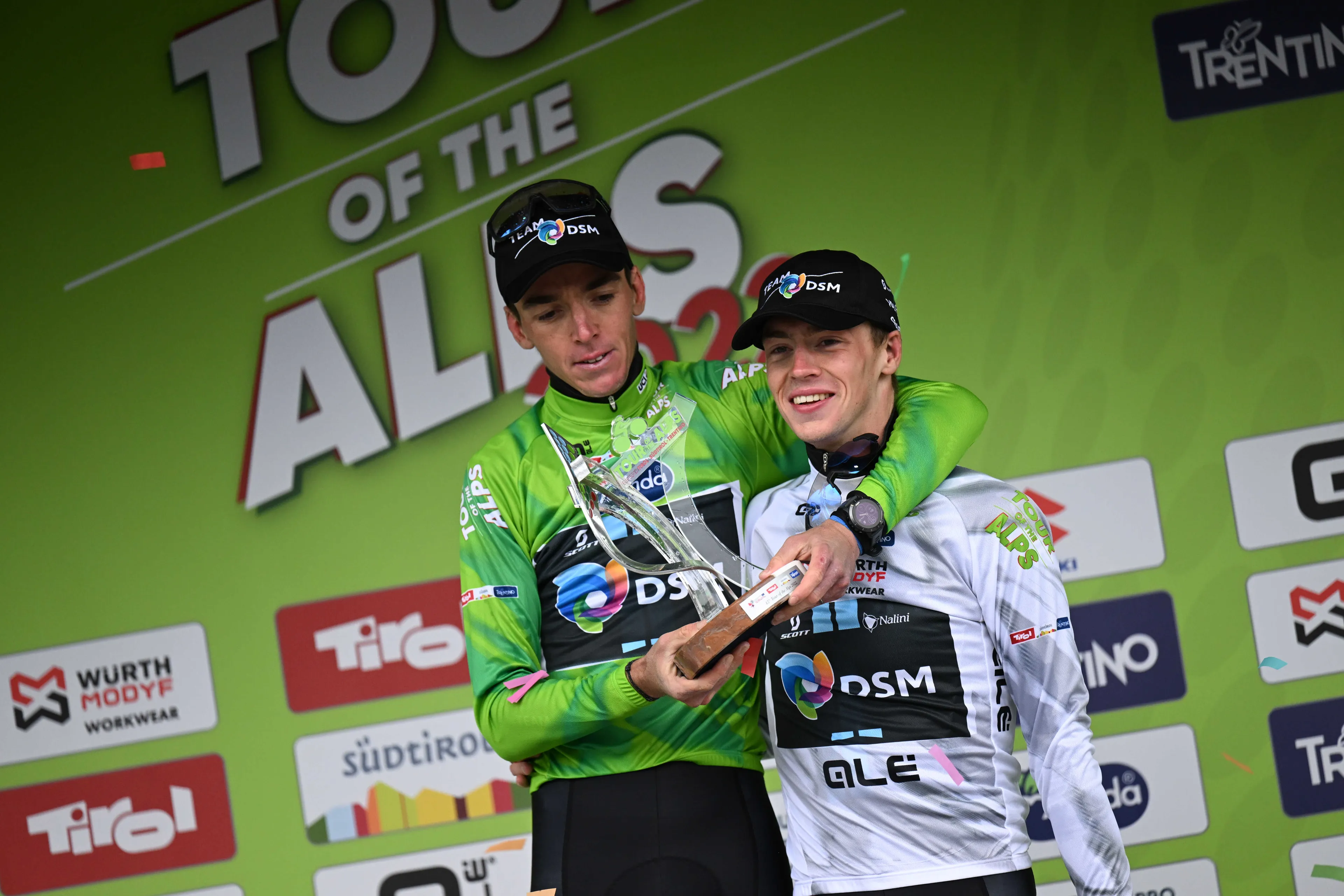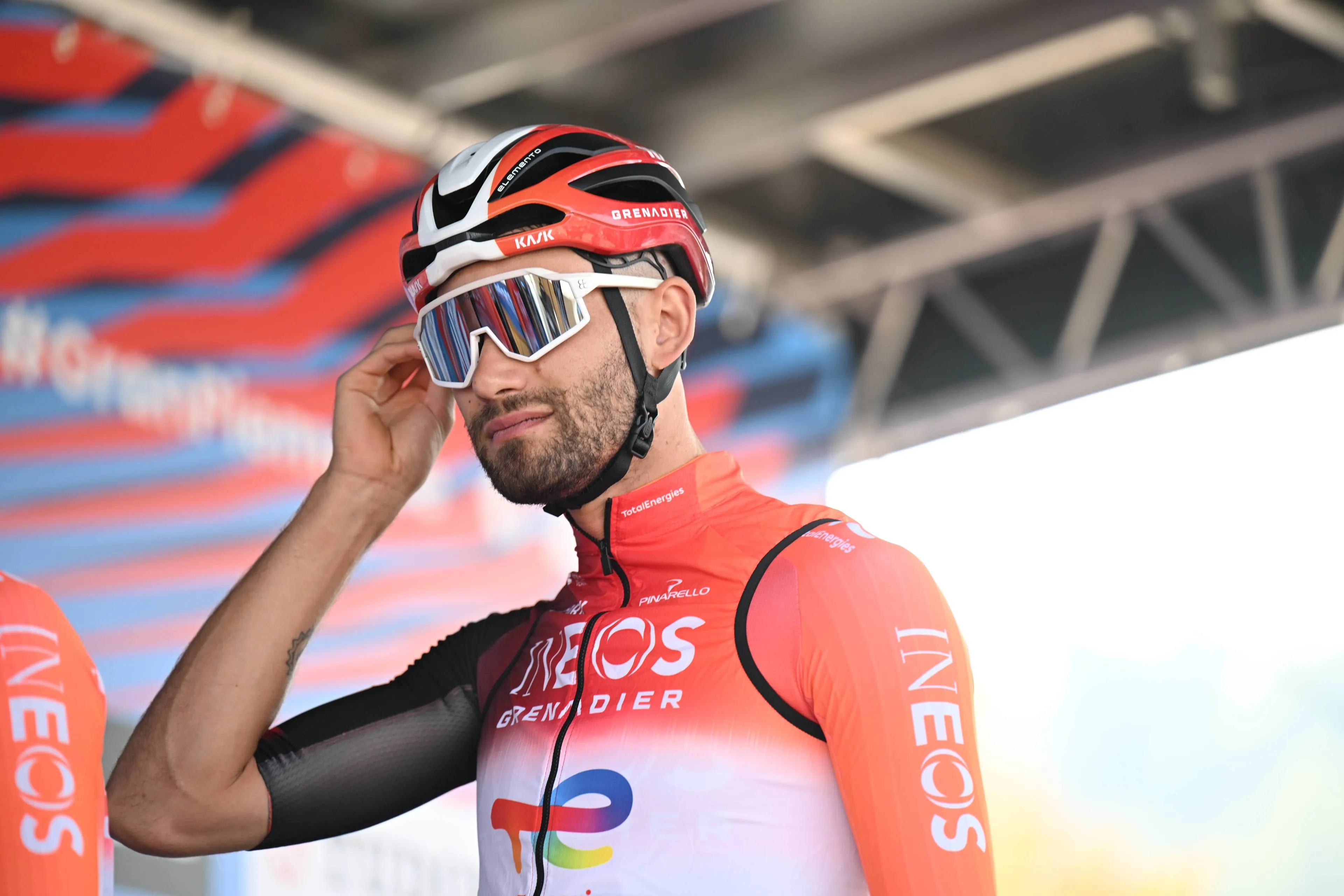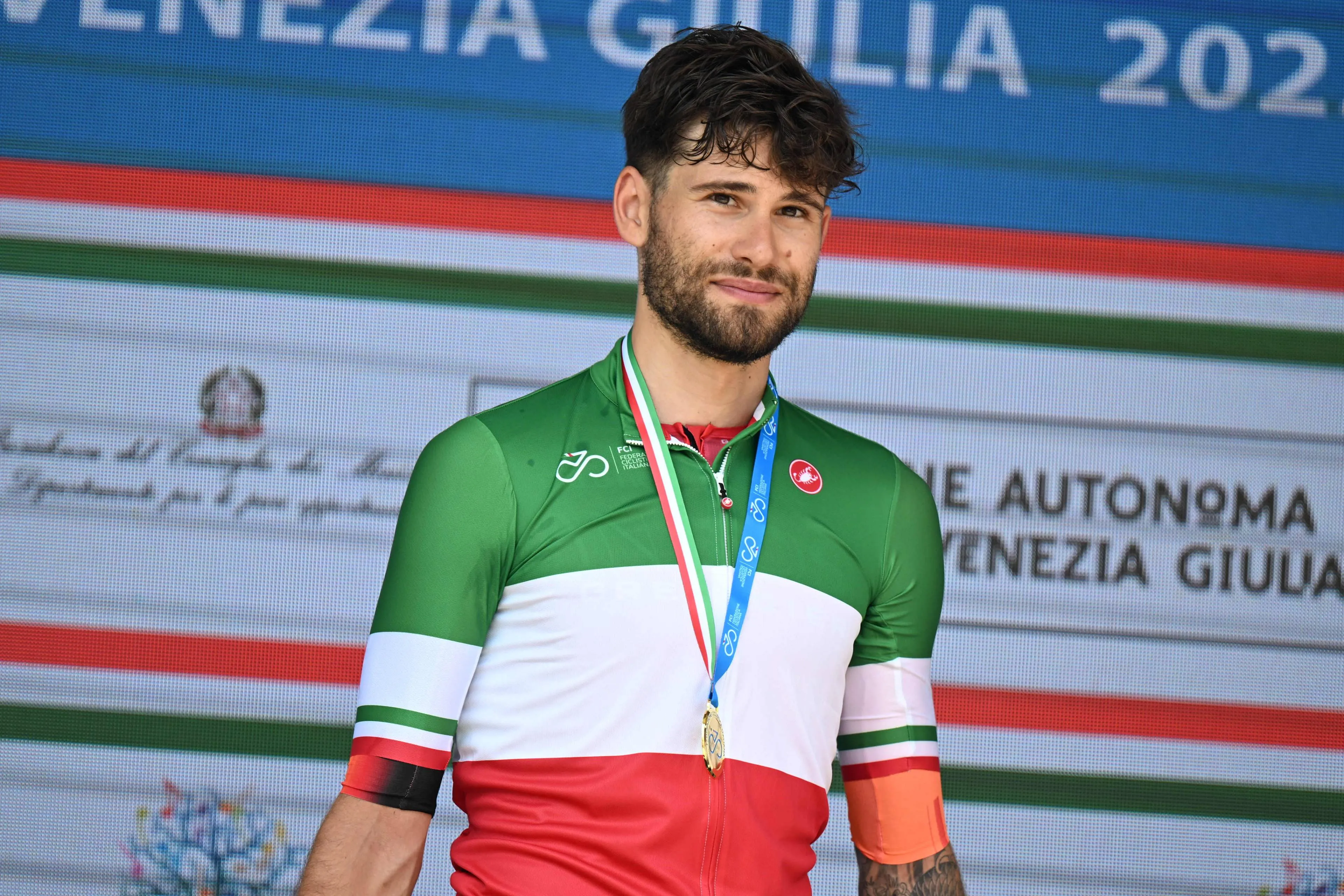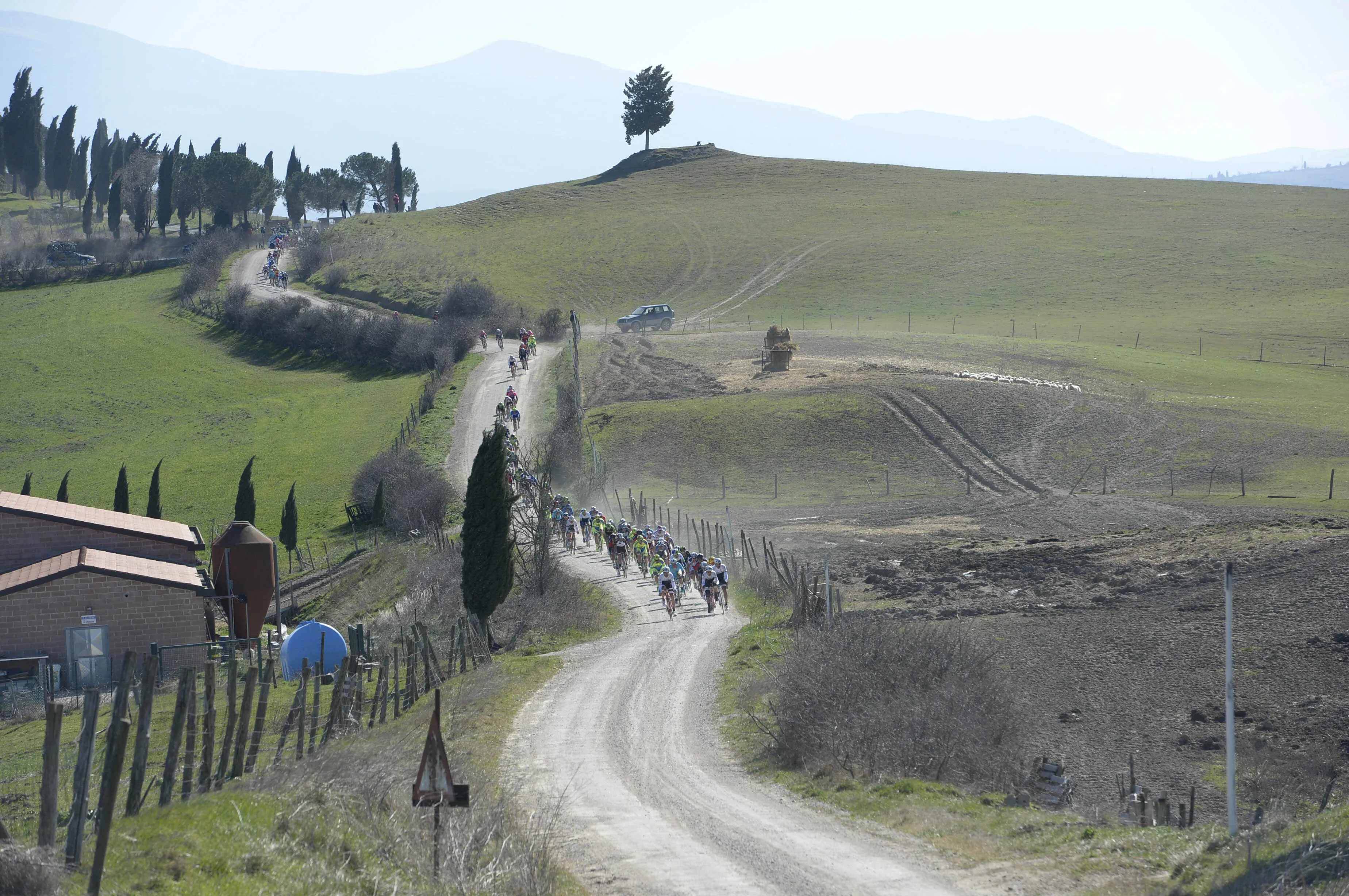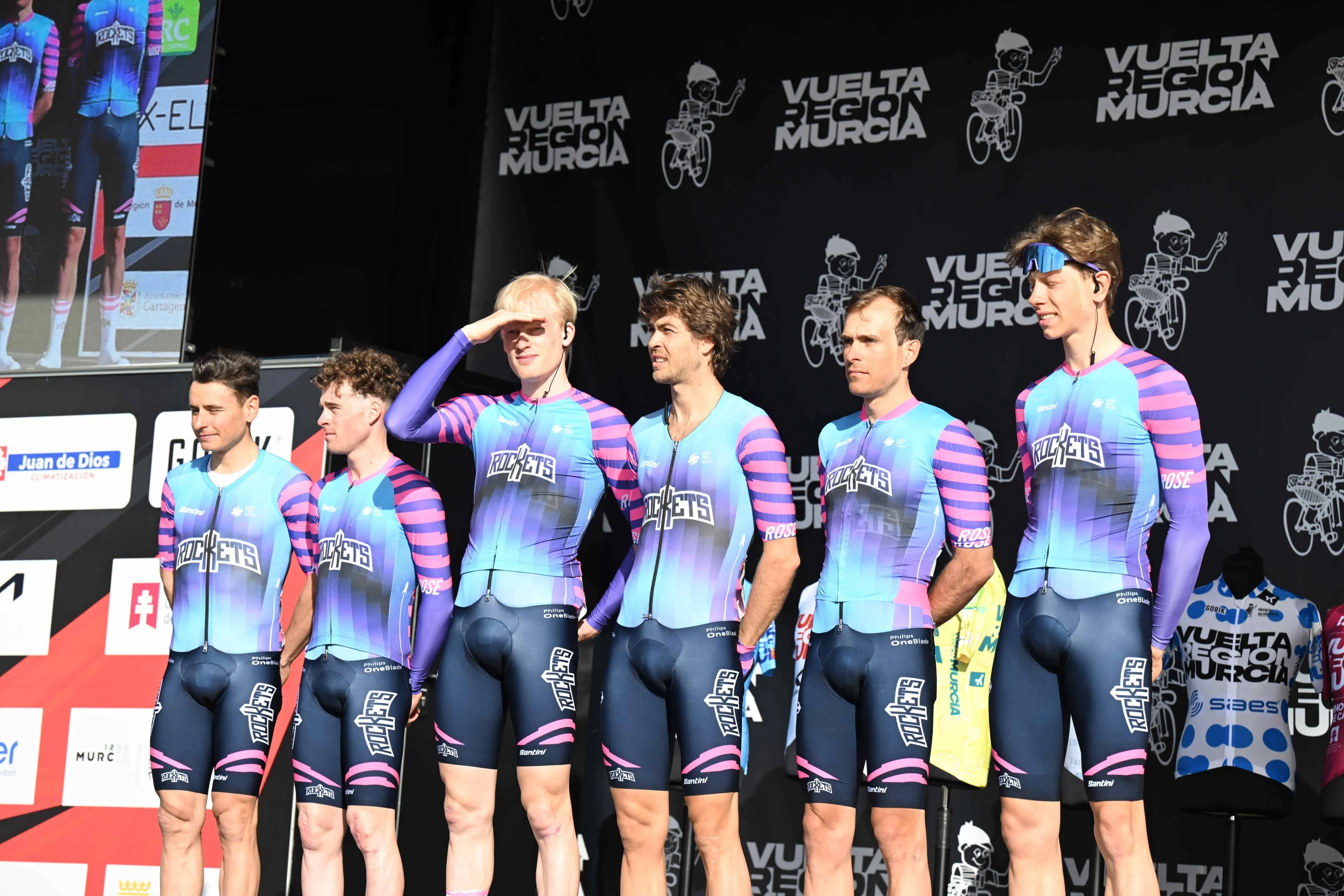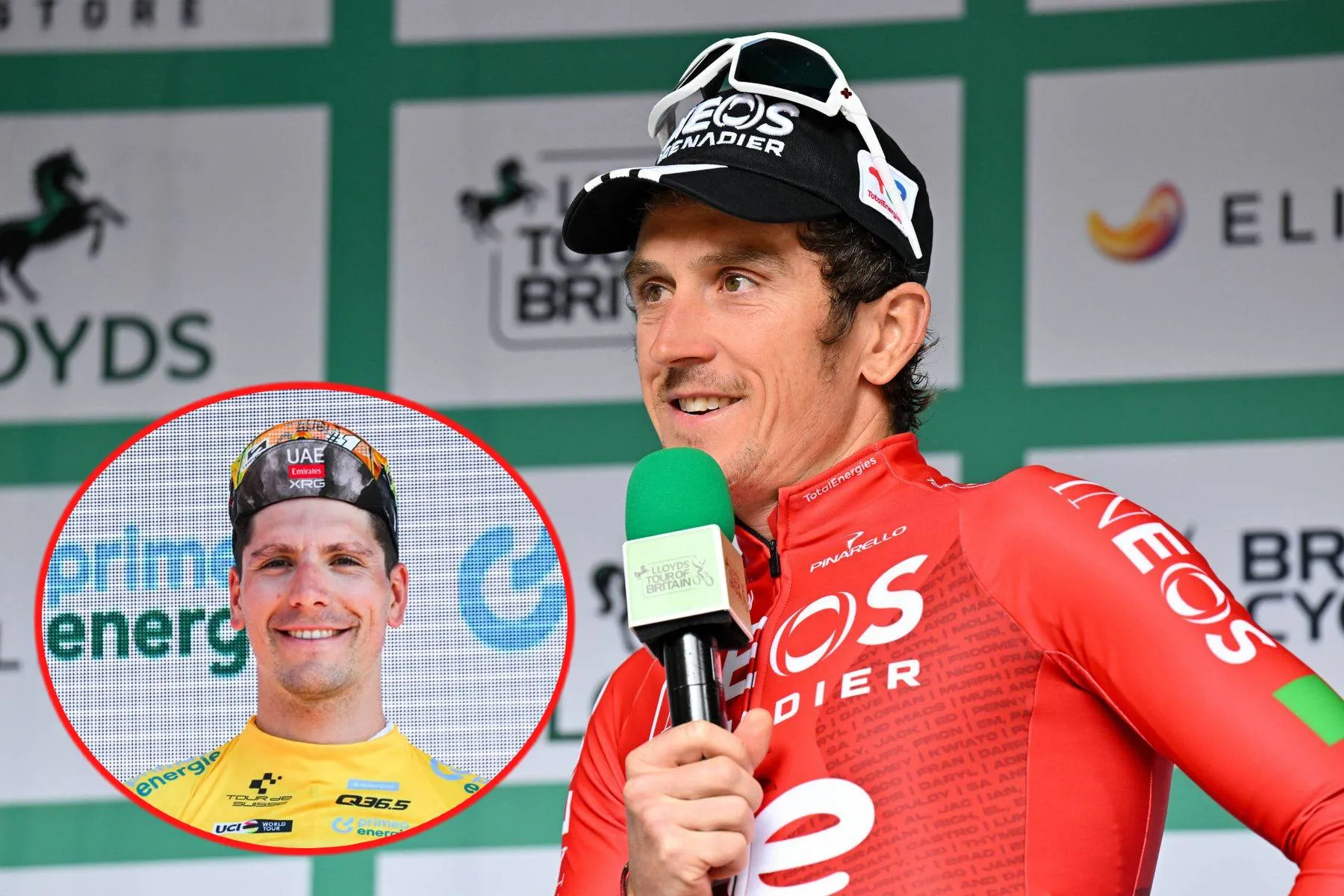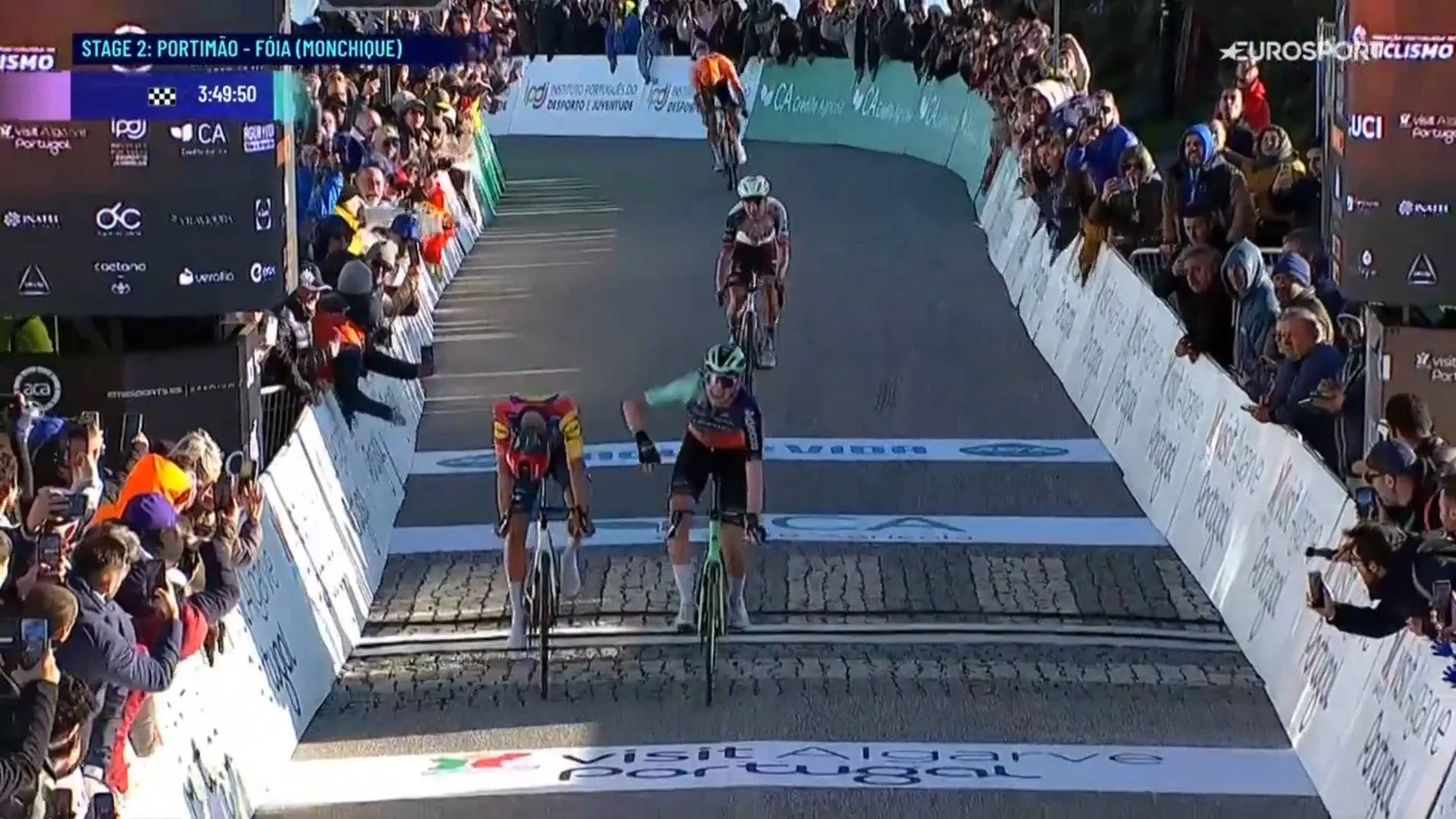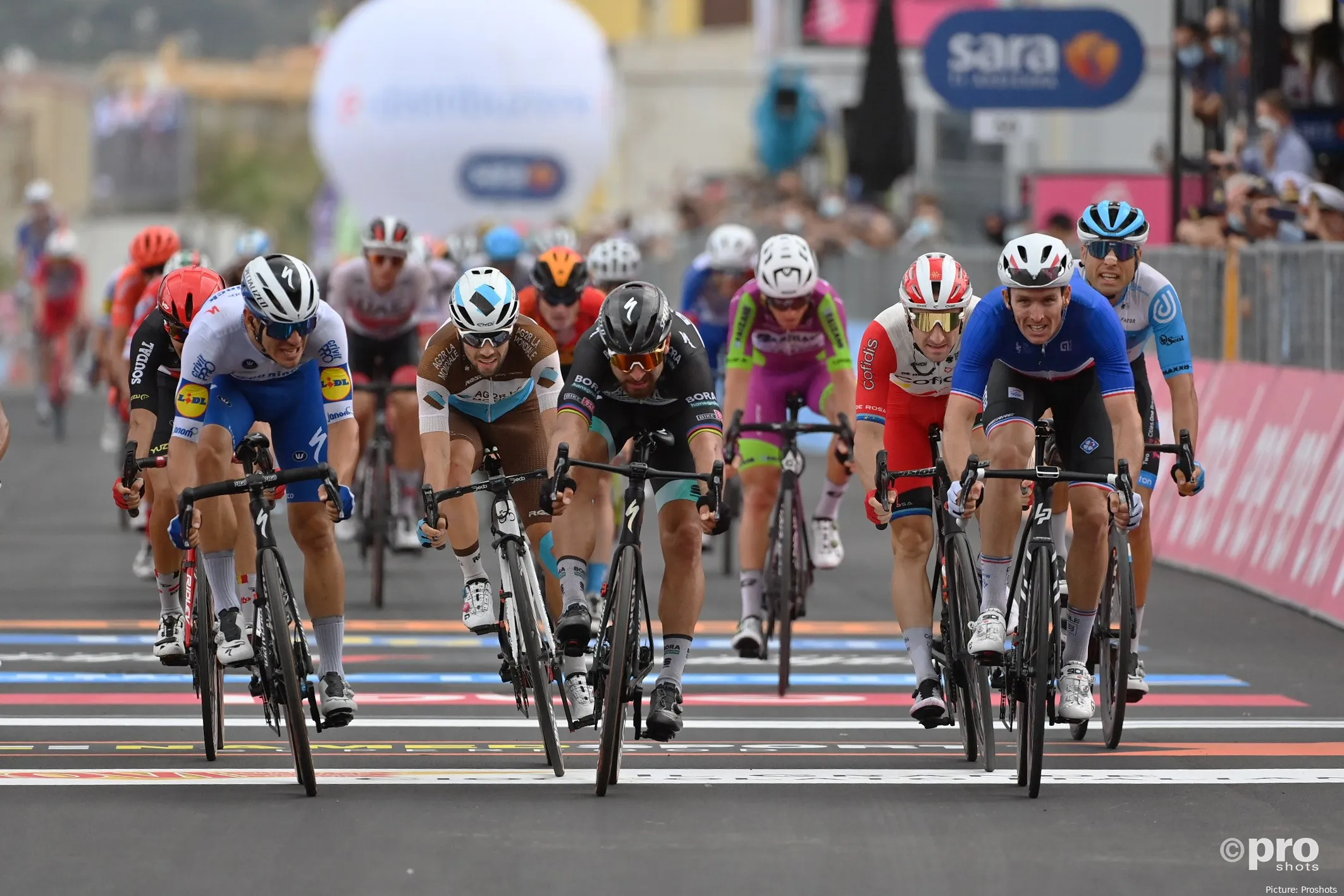
The Giro d'Italia will be the first Grand Tour of the season and it will be an edition largely favourable to the climbers. Taking place from the 6th to the 29th of May, the 21 stages will dictate the winner of what is one of the most disputed races in the calendar.
Read also

Stage 1: Budapest - Visegrád, 195Km
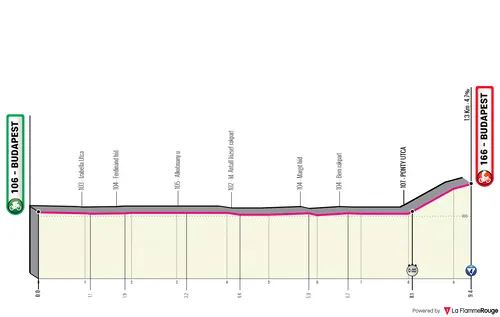
Stage 2: Budapest - Budapest, 9.2Km
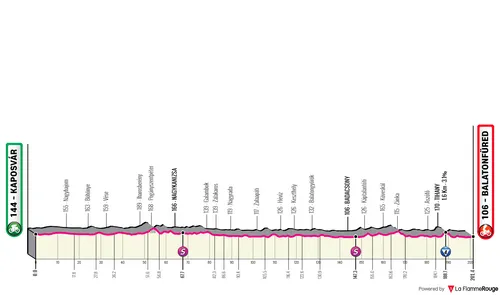
Stage 3: Kaposvár - Balatonfüred, 201Km
The Grande Partenza takes place in Hungary this year after last year's start was postponed. The three opening stages will see three different types of riders battle for the win, as the opening day will see a 5.5 kilometer long climb at 4.2% closing the stage. The puncheurs will be the most favoured, but a wide variety of riders have the chance to get the opening pink jersey.
On the second day it's likely to change hands, as the race has it's first time-trial with a short distance of 9.2 kilometers. It's a technical course which finishes with a small hilltop in the Hungarian capital of Budapest, which is far from ideal for the specialists. The third day is expected to see a bunch sprint into Balatonfüred.
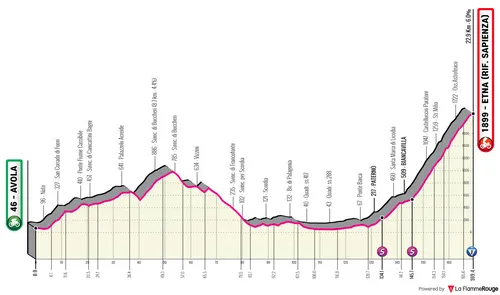
Stage 4: Avola - Etna, 166Km
As the peloton flies into Italy, the race restarts in Sicily with the classic summit finish at Mount Etna. This year's summit finish will be at Rifugio Sapienza after a long ascent, officially categorized at 22.9 kilometers long at 6.0%. This climb won't be the first place where differences will be created between the favourites, however it will be hard enough to put any fragilities in display, and will be a good indicator as to who will be on the fight for the win of the race, and who won't.
Read also

Stage 5: Catania - Messina, 172Km

Stage 6: Palmi - Sclarea, 192Km
Stages five and six should be days for the sprinters. The first of them, not pan-flat as it features a long ascent of the Portella Mandrazzi, however likely too far from the finish to be a place where teams will attack in order to distance the less-climbing skillful sprinters. Day six of the race sees the peloton enter mainland Italy, on what is sure to be another bunch sprint.
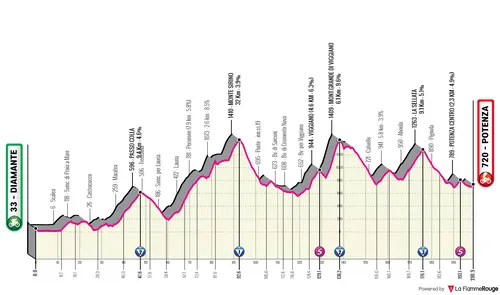
Stage 7: Diamante - Potenza, 198Km
Stage seven is a Giro d'Italia classic, where the stage will feature around 4700 meters of climbing. What will happen on this day depends on the will of the GC favourites, it is a day with plenty climbing where serious differences can be made, and with no clear order on the win favourites - besides being in the opening week - the race can explode easily in the mountains towards Potenza. Monte Scuro (6.1Km at 9.6%) is the moment of particular attention in the stage, an incredibly complicated ascent that summits with 61 kilometers to go and sees nothing but a roller-coaster afterwards.

Stage 8: Napoli - Napoli, 149Km
Stage eigth will revolve around the city of Napoli, as it tackles a couple of loops which may see either a sprint finish, a late attack or even a breakaway succeed in the lumpy day.
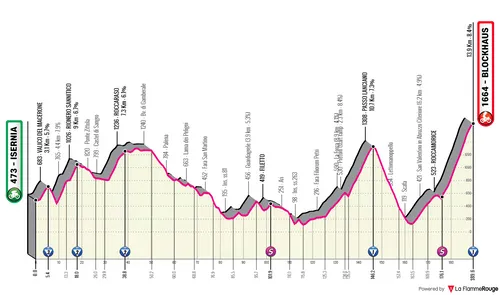
Stage 9: Isernia - Blockhaus, 187Km
Stage nine will take place in the Appennines and will likely see big differences. The start of the stage is quite complicated, but it only gets harder towards the end as the peloton will ride first the Passo Lanciano (10.5Km at 7.4%) and then the brutal ascent to Blockhaus. Blockhaus officially has 13.7 kilometers at 8.5%, however it is is even longer than that. It is a brutal ascent, which the Giro will see aplenty, and serious differences are expected at the top.
Read also

Stage 10: Pescara - Jesi, 194Km

Stage 11: Santarcangelo di Romagna - Reggio Emilia, 201Km
Stage ten will take place in the rugged eastern coast of Italy. It's an open day, pan-flat at the start however quite hilly in it's second half, possibly for a reduced sprint, but a late attack scenario is also quite possible as the climbs present enough challenge for that. Stage eleven will be pan-flat in the Reggio Emilia and will be a bunch sprint.

Stage 12: Parma - Genova, 204Km
Stage twelve sees the peloton in a hilly day. One likely to be fought between the breakaway, however a GC battle can break out if one the favourites decides to toughen up the race. The first half of the day into Genova is mostly flat, however the second half has a few ascents, most noticeably the ascent that finishes with 30 kilometers to go.

Stage 13: Sanremo - Cuneo, 157Km
Stage thirteen will likely be a sprint stage, however with a complicated challenge early in the day as the stage starts by the Tirreno sea, and will face the Colle di Nava (11.1Km at 6.2%). The stage will be flat from there on, however there is no real descent after the climb.
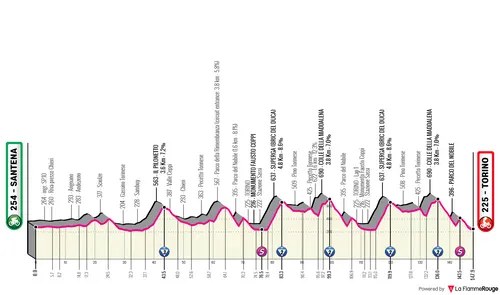
Stage 14: Santena - Torino, 147Km
Stage fourteen will be tackled within Torino. Like the Napoli stage, it will be a hilly stage around the city, however this one much more complicated as it features a double ascent of the Superga climb (4.8Km at 8.6%). But the stage won't just be that, as the final kilometers will be as hard.
The Colle della Maddalena summits with 12 kilometers to the finish and sees 3.8 kilometers at 7%, which a brutal first half. The finish into Torino is almost completely downhill from there on, with the exception of a sharp hilltop with an intermediate sprint that will be tackled with just four kilometers to go.

Stage 15: Rivarolo Canavese - Cogne, 177Km
The Valle d'Aosta will be tackled on stage fifteen as there will be a hattrick of ascents into the summit finish in Cogne. The ascents into Pila - Les Fleurs and Verrogne will make the race hard, perhaps provide a launchpad for attacks, and the final ascent to Cogne (22.1Km at 4.3%) will be a final opportunity to create differences, with it's very irregular gradients.

Stage 16: Salò - Aprica, 200Km
There will be several stages that can create differences, however stage sixteen may perhaps be the most complicated. The brutal climb to Goletto di Cadino will open things up, and then give way to the iconic Passo del Mortirolo which will be tackled via a more gentle vertent, however very complicated nonetheless.
With the brutal finale to the stage however, it is expected that the GC contenders will wait until the final climbs. Teglio (5.1Km at 8.7%) and the final climb into Valico Santa Catarina (12.7Km at 8.1%) will be the climbs where gaps will be made. The last summits with just seven kilometers to go, before a descent finish into Aprica.

Stage 17: Ponte di Legno - Lavarone, 165Km
The uphill start to stage seventeen in Ponte di Legno will provide an opportunity for strong groups, or even a raid to go up the road. With that said, the final part of the stage sees a brutal combination of climbs where the GC can once again be reshaped. Valico del Votriolo (12Km at 7.6%) will warm things up, but the attacks are to come in the final climb to Monte Rovere which is close to the finale in Lavarone.
8 kilometers at 9.6% is a brutal ascent which will put many into serious difficulties. This is another stage where big differences are set to be made as slipstreaming will offer little to no protection on the final climb.
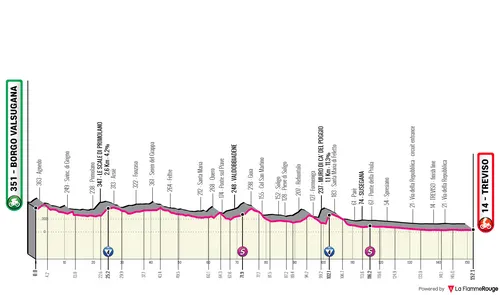
Stage 18: Borgo Valsugana - Treviso, 146Km
Stage eighteen will provide a final opportunity for the sprinters to succeed, although with the Muro di Ca del Poggio less than 50 kilometers from the finish may see quite a lot of surviving sprinters in trouble.
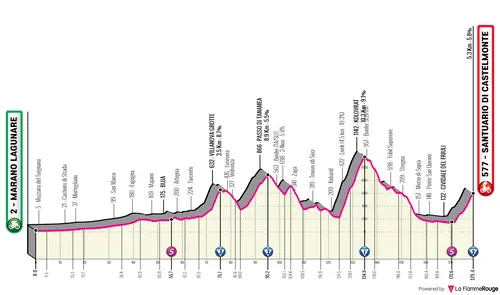
Stage 19: Marano Lagunare - Santuario di Castelmonte, 178Km
Stage nineteen sees a traverse into Slovenia before a finish in the Friuli region. The hilltop finish at Santuario di Castelmonte is unlikely to see any major differences, however the ascent within Slovenian territory - Kolovrat - is the opposite. 10.3 kilometers at 9.1% will make for another place where the race can be raided, being positioned quite far from the finish 53 kilometers away, however close enough to encourage possible attacks seeing the long descent that follows.
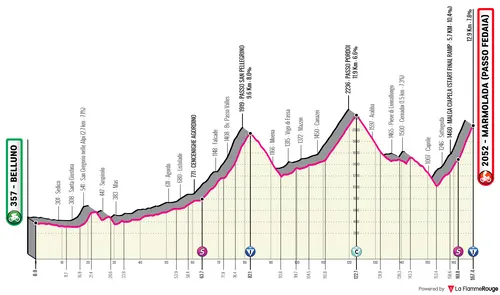
Stage 20: Belluno - Marmolada (Passo Fedaia), 167Km
The final mountain stage will se the peloton hit the Dolomites. The Passo San Pellegrino and Passo Pordoi will be setting up the rhythm as the riders go into the high mountains where altitude will be affecting the race. The final ascent - and summit of the race - will be at Passo Fedaia.
The 12.9 kilometer climb at 7.8% was taken out of the menu due to bad weather last year, however here that is less likely to happen as the climb dictates the end of the stage. It's final 5.7 kilometers have a 10.4% average gradient and goes above 2000 meters towards the end. It's a brutal summit finish, worthy of a brutal race.

Stage 21: Verona - Verona, 17.1Km
The final stage of the race is unlikely to set any important differences at this point of the race, however there is a stage to battle it out in Verona where the Giro will see it's closure. The time-trial is not flat aswell, it features a small hilltop and a technical descent which makes it another tough challenge for the time-trialists.
claps 0visitors 0
Just in
Popular news
Latest comments
- I was going to post the same comment. He just can’t catch a break.Pedalmasher20-02-2026
- Totally agree. This kid has a bright future.Pedalmasher20-02-2026
- The thing is, he never has to worry about his career because he can spend the rest of his life living rent-free in your head.antipodeanpedalfan20-02-2026
- That's true, but you can't count out a resurgence from him later like Vingegaard did in 2025 (although he was 10 seconds behind, not 30)
 Rafionain-Glas19-02-2026
Rafionain-Glas19-02-2026 - Lipowitz ddn't really keep up to the big boys today either.....mobk19-02-2026
- Yes, the guy is no fluke. Even if he fails to improve over the next 15 years he’ll do damage. That young blood is going to keep the establishment working hard.Mistermaumau19-02-2026
- This excuse is harmless, just quaint and amusing. The excuse I really disliked was when he accused a mechanic of improperly adjusting his saddle, endangering the mechanic's job: blaming others for your own limitations is a serious matter.
 maria2024202419-02-2026
maria2024202419-02-2026 - ok so this is impressive - I trashed this guy all winter, get a pro win before the anointing. against a quality field. And Onley and Riccitello look good too. fun to see young blood.mij19-02-2026
- Minor flaws.... thats like suggesting Genghis Khan was a bit aggressive with other countriesslappers6619-02-2026
- Then you carry on if that's what makes you happyslappers6619-02-2026
Loading
1 Comments
